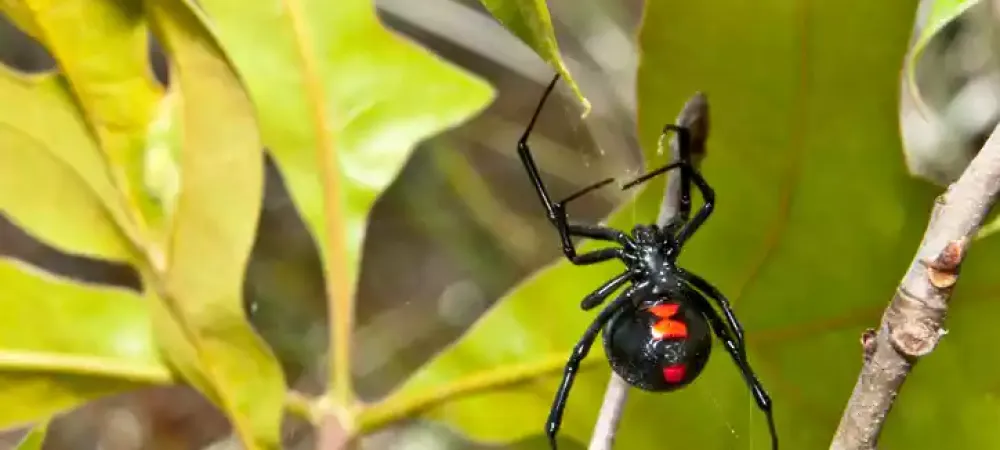The Most Common Spiders in Illinois and How to Keep Them Out

Spiders—whether you find them fascinating or freaky, they’re a part of life in Illinois homes. While most of these eight-legged guests are harmless, that doesn’t mean you want them hanging out in your living space. From the spooky brown recluse to the harmless (yet still startling) jumping spider, here’s a rundown of the most common spiders you might find in your Illinois home and how to keep them outside where they belong.
Poisonous Spiders in Illinois
While the majority of spiders in Illinois are harmless, a few species can deliver venomous bites that pose health risks to humans. Here are the most common venomous spiders you might encounter:
- Brown Recluse Spider (Loxosceles reclusa): The brown recluse is one of the most infamous spiders in Illinois due to its potent venom. Recognizable by the violin-shaped marking on its back, this spider typically hides in dark, undisturbed areas like closets, basements, and attics. While bites are rare, they can cause serious reactions, including necrotic skin lesions, which require medical attention. Symptoms of a brown recluse bite can include pain, fever, and chills, so seeking medical care is crucial.
- Black Widow Spider (Latrodectus mactans): Known for its shiny black body and distinctive red hourglass marking, the black widow is another venomous spider found in Illinois. Black widow venom is neurotoxic, meaning it affects the nervous system. A bite from a black widow can cause muscle pain, cramps, and in severe cases, difficulty breathing. While black widows are typically found outdoors in sheds, garages, and under decks, they occasionally make their way inside. Prompt medical treatment is essential if bitten by a black widow.
Non-Poisonous Spiders in Illinois
While venomous spiders tend to get all the attention, most spiders you’ll find in your home are harmless. These non-poisonous spiders may still have venom, but it’s not harmful to humans. Here are some of the common non-poisonous spiders in Illinois:
Common House Spider (Parasteatoda tepidariorum): This small, brown spider is likely the one you’ll encounter most often in your home. They spin messy, irregular webs in corners, windowsills, and basements. While they do have venom to subdue their insect prey, it’s completely harmless to humans. These spiders are more of a nuisance than a threat and actually help control the population of other pests in your home.
Wolf Spider (Lycosidae family): Wolf spiders are large, hairy spiders that hunt their prey on foot rather than spinning webs. Despite their intimidating appearance and quick movements, wolf spiders are not aggressive, and their venom is not harmful to humans. Their bites might cause mild irritation at worst, but these spiders are more likely to flee than fight when encountered.
Jumping Spider (Salticidae family): Known for their big eyes and ability to jump several times their body length, jumping spiders are more curious than creepy. They’re often found hopping around walls, windows, and ceilings during the day. While jumping spiders do have venom to catch their prey, it poses no risk to humans. In fact, many people find these spiders more amusing than alarming.
Why Are Spiders Moving In?
Spiders generally prefer to be outdoors, but there are a few reasons why they might decide to shack up with you:
- Food: If your home has a lot of insects, spiders will move in for the buffet. Flies, ants, and other small bugs are a spider’s dream meal, so controlling these pests can help reduce your spider problem.
- Shelter: As the weather cools down, spiders might seek out the warmth and protection of your home. Basements, attics, and storage areas are prime real estate for these critters.
- Mating: During mating season, male spiders are on the move looking for a mate. Sometimes, this search leads them into your home by mistake.
How to Keep Spiders Out of Your Home
If the thought of sharing your home with spiders gives you the creeps, here are some tips to help keep them at bay:
- Seal It Up: Spiders can sneak in through the tiniest cracks and gaps, so take a walk around your home and seal up any potential entry points. This includes cracks in the foundation, gaps around windows and doors, and holes in screens.
- Declutter: Spiders love to hide in cluttered spaces, so keeping your home tidy can make it less inviting for them. Store items in sealed containers and regularly clean out closets, basements, and garages.
- Control Other Pests: Since spiders come looking for food, controlling other insects in your home is key. Use insect repellents, traps, or even consider professional pest control to reduce the number of bugs inside.
- Regular Cleaning: Regularly dusting, vacuuming, and sweeping can help remove spiders, webs, and egg sacs before they become a bigger problem. Pay special attention to corners, ceilings, and other out-of-the-way spots.
- Natural Repellents: Some natural products, like essential oils, can help keep spiders away. Peppermint, citrus, and lavender oils are popular choices. Just mix a few drops with water in a spray bottle and apply it around windows, doors, and other entry points.
- Call in the Pros: If you’re dealing with a serious spider problem or spot dangerous species like brown recluses or black widows, it might be time to bring in professional pest control. They can safely and effectively eliminate spiders and other pests from your home.
While most spiders in Illinois are harmless, that doesn’t mean you want them setting up shop in your home. By knowing what kinds of spiders you’re dealing with and taking a few simple steps to prevent them from moving in, you can keep your space comfortable and spider-free. And remember, if you ever encounter one of the more dangerous species, it’s always best to err on the side of caution and seek professional help.
References
Illinois Department of Public Health. (2023). Spiders in Illinois. https://www.idph.state.il.us/envhealth/pcspiders.htm
